From morning meal to celebratory drinks: the Alpecin-Deceuninck relay with Van der Poel locking in the win in Roubaix
CyclingMonday, 08 April 2024 at 09:02
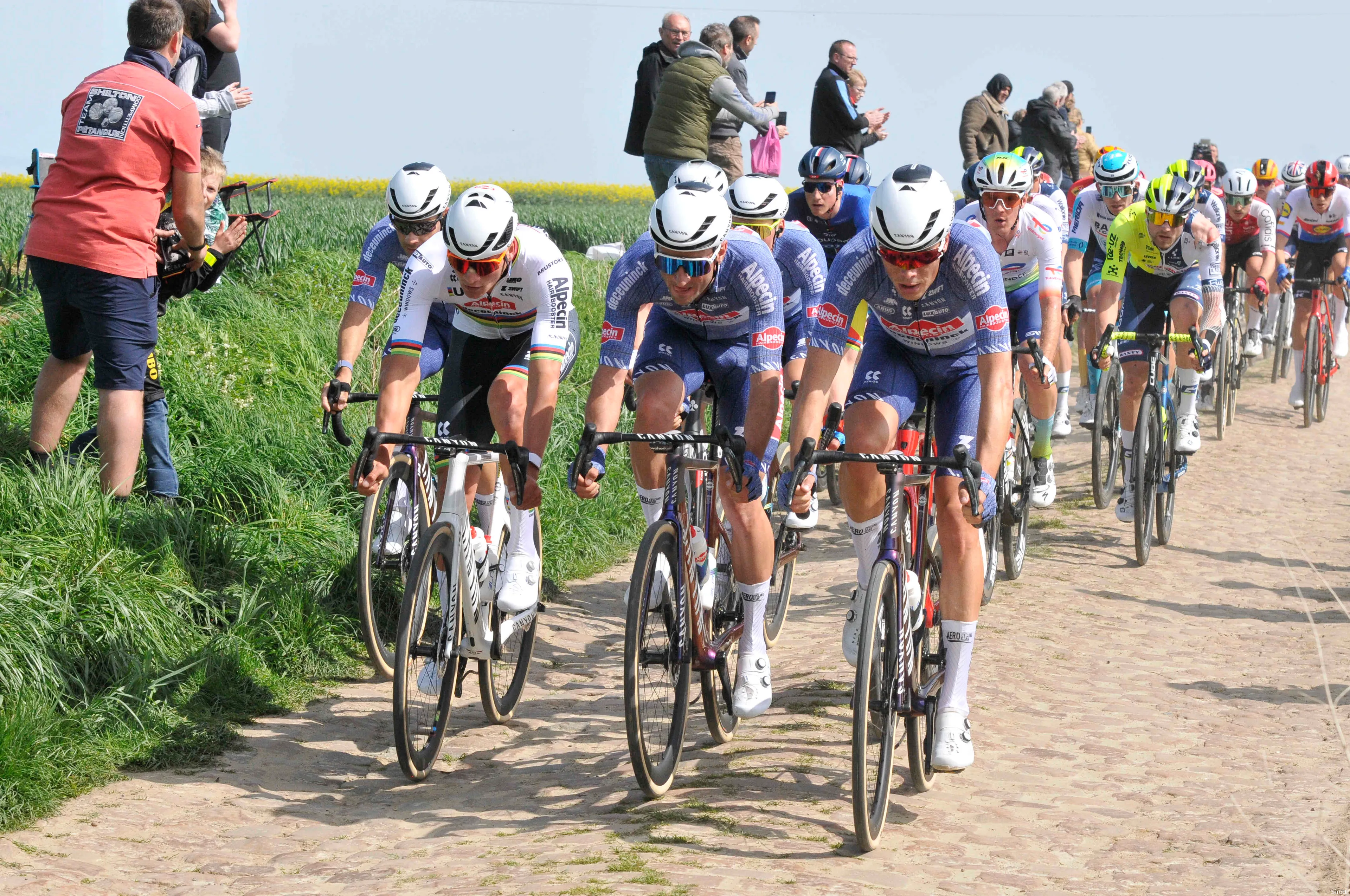
It is no secret that Mathieu van der Poel prefers to start a race without a plan, or rather, with just one plan: to win. His team, Alpecin-Deceuninck, has managed to perfect the conditions for this this season, down to the tiniest details, resulting in wins in all three (!) monuments of 2024.
The atmosphere was great on the Alpecin-Deceuninck bus, hours before the start of Paris-Roubaix. Music, a joke here and there: that's how the teammates of the Dutch cycling champion knew that Van der Poel was at his best. And that they had to be too. Silvan Dillier, once second in the Hell of the North after Peter Sagan, led the team from kilometer marker zero. Edward Planckaert, in turn, made occasional leaps forward.
The blue shirts indicated that the opening phase could become hectic. And so it was: the first hour was completed at a killer pace of nearly 55 (!) kilometers per hour. Van der Poel also adjusted his bike choice accordingly, he explained afterwards. "I started with thinner tires. I expected a tough battle for the breakaway, so this way I could save some energy. I did the same last year," the world champion revealed afterwards.
A good choice, it turned out. Just before the first sector, he was able to switch relatively comfortably, then to reposition at the front with, among others, Mads Pedersen, who was returning from a pee break. Meanwhile, his teammates made sure that the relatively dangerous breakaway group, including Kasper Asgreen, Per Strand Hagenes and Rasmus Tiller, didn't get too much room: a maximum of two minutes was all they were allowed.
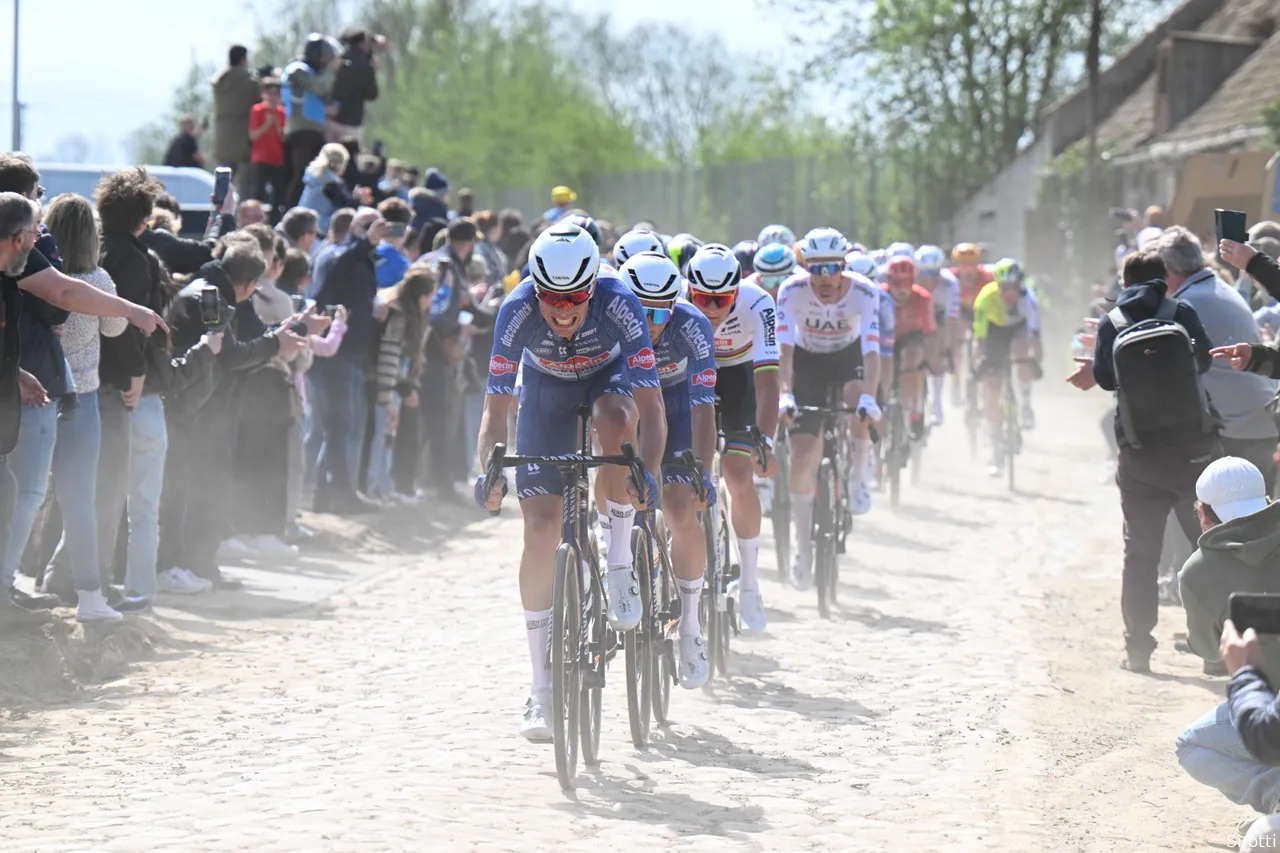
Alpecin-Deceuninck at the helm on the cobblestones
Heading towards the first cobblestone section, it is often the case that teams want to be at the front, but not necessarily push through immediately. This year, Alpecin-Deceuninck chose a different strategy. "We demonstrated the strength of our team, everyone was at a great level and committed to the plan. Our goal was to make the race hard and thereby thin out the peloton before the chicane, so we could reduce stress and put the others under pressure. Moreover, we knew that on the cobblestones, it's better to ride at the front," explained Jasper Philipsen, who ultimately finished second.
The competition also noticed that the team of the Roodhooft brothers took the bull by the horns. "I saw that Alpecin-Deceuninck was the strongest. Starting from the first cobblestone section, they took control of the race, with Mathieu van der Poel standing out above the rest by a lot. In the fastest edition ever, so that says something," observed Merijn Zeeman, sports director at Visma | Lease a Bike.
Was that then based on the advice of Van der Poel, who normally doesn't plan? He had, when asked, talked about the dangers and risks of the chicane before the Forest of Arenberg. "Fortunately, we didn't storm the chicane with a full peloton. We were down to thirty or forty men. Of course, it's good that they look at options to improve safety, as I also said two days ago, but during the recon, it was even worse than it looked on video. If you charge at it with a hundred men, only five can continue. The rest would be stopped in that case. So in that sense, it's not a solution either," said the winner.
Oscar Riesebeek (who was once again riding very strong), Timo Kielich (who all but missed a turn), Planckaert and Dillier had already completed their jobs at that point. So who remained? Van der Poel, Philipsen and Gianni Vermeersch, who was racing very attentively. "I don't know if this is my best form ever. In 2021, I finished seventh in the Tour of Flanders, so I rate that very highly too. But I am approaching that form. I had very good legs," said the Belgian.
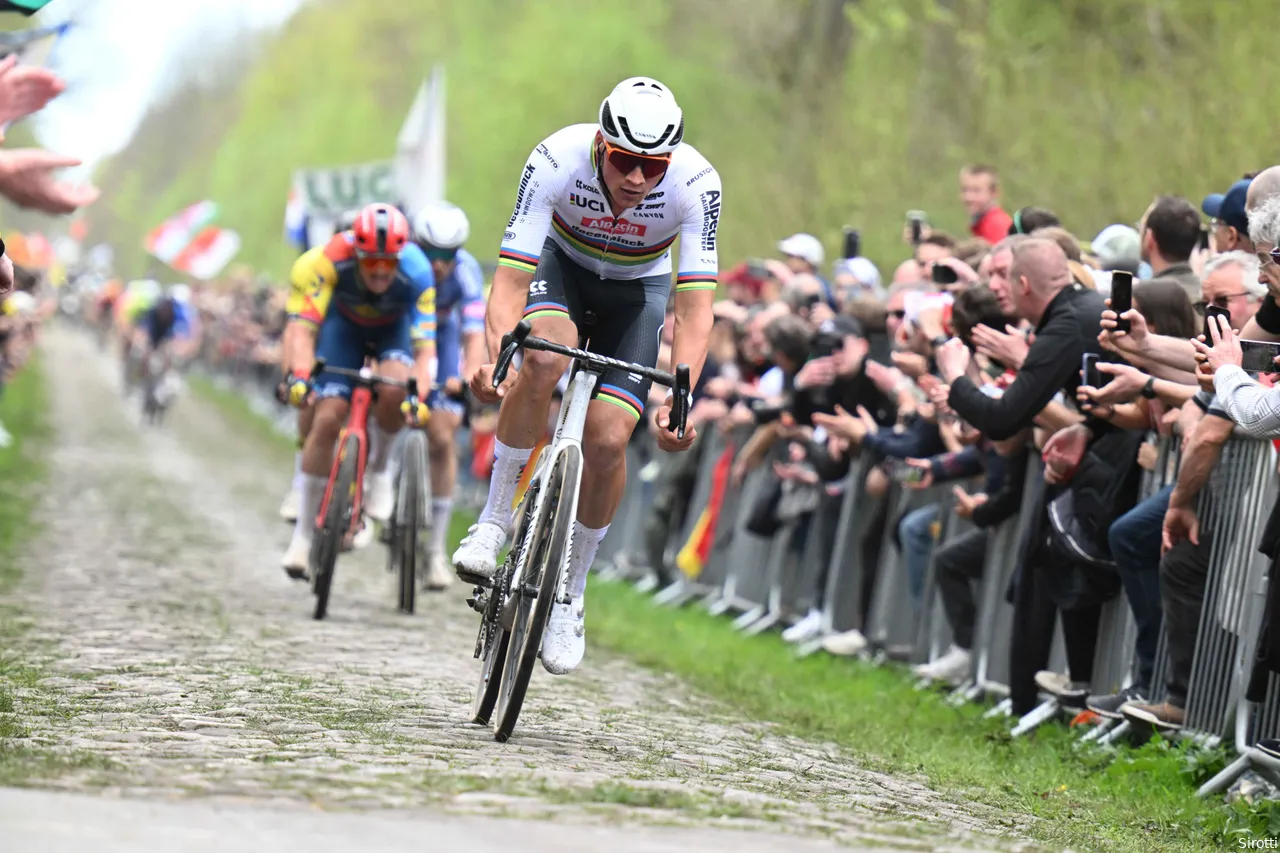
Philipsen and Vermeersch as perfect watchdogs for Van der Poel
On the Arenberg stretch, Van der Poel already created a small gap, then allowed Philipsen, Pedersen and Mick van Dijke to catch up. However, Philipsen had a puncture, causing everyone to bunch together again. "It's fantastic to ride for Mathieu," Vermeersch said after the finish. "He elevates the level of the entire team, and he proves that time and again. I can also play my role as a watchdog. I'm good at it and I like doing it."
We'll return to that watchdog role later. Van der Poel waited for a few more sections, then launched his real attack sixty kilometers from the finish. But first, he had to warn his team directors and mates, as he explained afterwards. "They had asked if I could let them know this time when I was going to attack. So they knew," he laughed. Philipsen: "Mathieu already mentioned that he had good legs. From experience, I know that when he says that, he really has good legs. When he launched his attack sixty kilometers from the finish, I knew it was going to be very difficult for the others to catch him."
"I thought it was a good moment to attack," Van der Poel clarified. "We were in a smaller group and the cooperation wasn't perfect anymore, so I wanted to make the finale harder. That's where my real strength is, but I didn't immediately expect to be able to ride away by myself. However, there was a nice gap, and I knew that it would mostly be tailwind to the finish, so I thought I could maintain it. When I heard that the lead was increasing, that really gave me wings."
Behind him, some tried to close the gap, with Pedersen in the lead. Yet, it was either Vermeersch or Philipsen who acted as the watchdog and hence managed to break the morale of the other riders. "He just kept gaining time, so at some point, it becomes a race within the race and more selection happens. The group got smaller and smaller, also due to bad luck. The race was not over, but in a way, it was," said Pedersen.
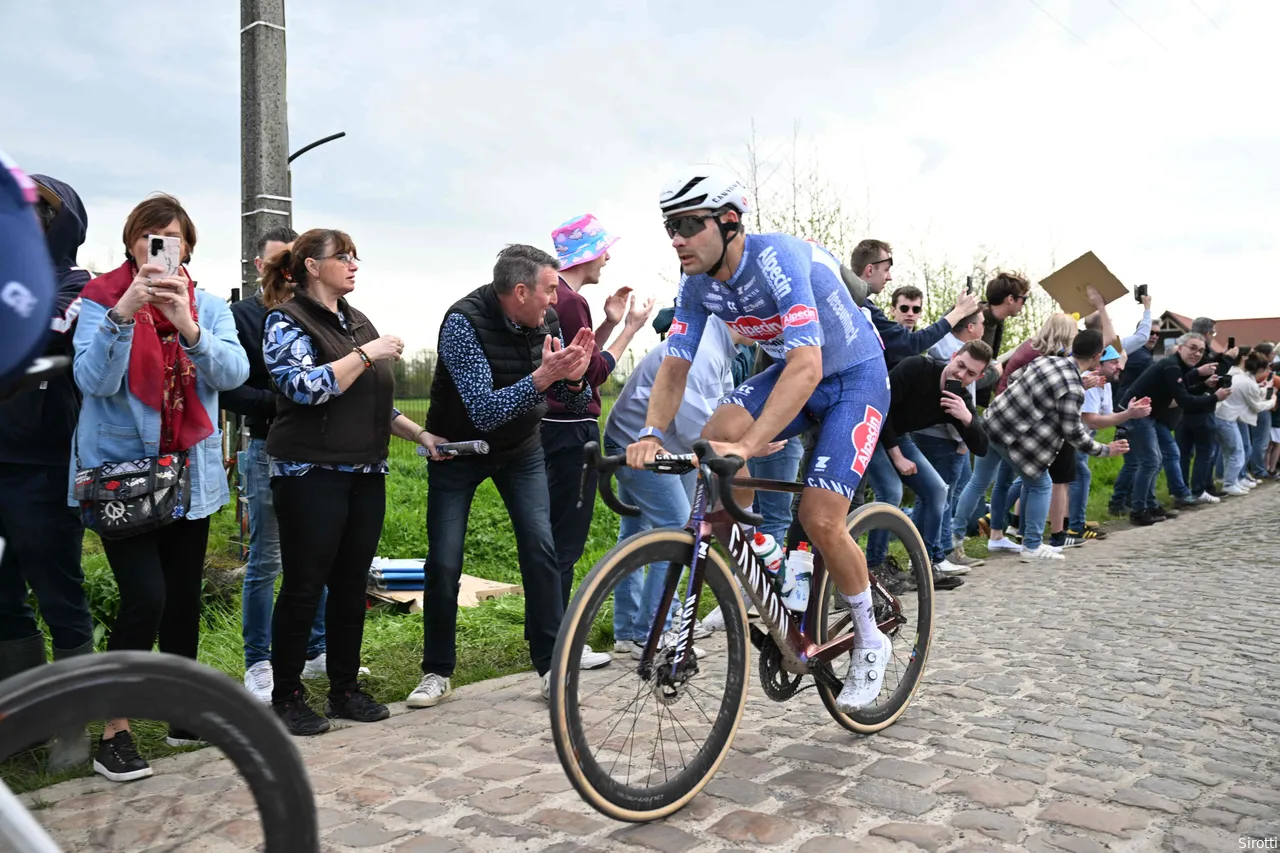
Time to enjoy, for Alpecin-Deceuninck and Van der Poel
"From the moment Mathieu attacked, I also took a defensive position. I was able to stay in the wheels for quite a long time, knowing that the strongest rider was up front with Mathieu," Philipsen indicated. This way, he could also enjoy a comfortable ride to Roubaix, just like Vermeersch, who eventually finished sixth. "I really enjoyed myself. It was a beautiful day. Last year I enjoyed it tremendously, and this year I felt even stronger than last year. It was fantastic. This was a fantastic day for me. Last season we finished first and second, but I just missed the top ten myself."
During his solo - which he finished with a three (!) minute lead - Van der Poel tried mainly to maintain focus. "I did not want to get a puncture, but also not to take unnecessary risks. Towards the end, there was some time and space to really enjoy it, which I did to the fullest. Victories like these don't come around very often," said the Dutchman.
A crazy party like that of last year was not in the cards, as Van der Poel still has the Amstel Gold Race and Liège-Bastogne-Liège to compete in. But there will probably be a victory beer or wine. Deservedly so, for all seven relay racers of the Belgian team. What do these guys eat for breakfast? "Pancakes, a bit of oatmeal," Philipsen confided to us with a laugh. May there be many more pancakes to come, then!
IDL-productions
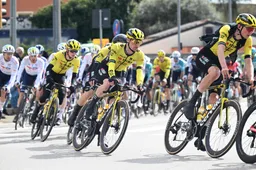
"I’m not going to sit in the chair of the sports management": Visma | Lease a Bike reflects on the spring classics season

Course and results Tour of Turkey 2025 | Dehairs leads after stage win, tough second stage ahead
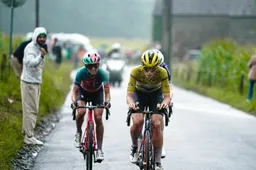
Preview Liege-Bastogne-Liege 2025 - women | Maybe a Tour de France Femmes 2024 rematch?
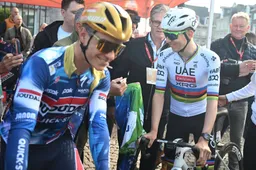
Preview Liège-Bastogne-Liège 2025 | Pogacar and Evenepoel as top favorites in last spring classic

Thibau Nys on his form, facing Pogacar, and that surprising Flèche Wallonne stat: "I was shocked"
Latest Cycling News
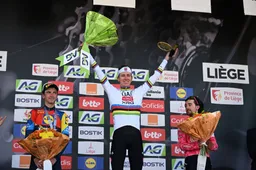
Pogacar’s 'killer move' strikes fear at Liège–Bastogne–Liège: "What I thought? Basta"
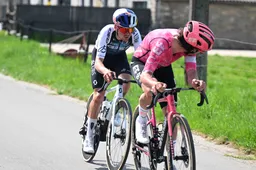
Pidcock saw Pogacar's unusual move, Alaphilippe 58th after cramps, Velasco takes a big step forward

Surprise from Mauritius had mental edge in the finale: "I could see they were struggling"

"I’m not going to sit in the chair of the sports management": Visma | Lease a Bike reflects on the spring classics season
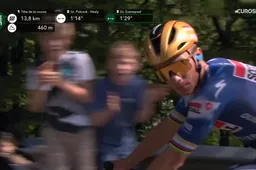
What happened to Remco Evenepoel in Liège-Bastogne-Liège? "I'm not a robot," states the Olympic champion
Popular Cycling News

Former pro has intriguing perspective on why Evenepoel struggles on steep slopes: "Tadej, by contrast..."

Flèche Wallonne top 10 reflects a new development in cycling, says Van Avermaet: "That has me worried"
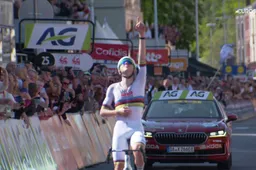
Pogacar sensed something was wrong with Evenepoel and Soudal Quick-Step before La Redoute: "Suddenly, they all disappeared"

No Pogacar or Evenepoel, but this rider impresses Bruyneel: "He is not at the level yet to be like a grand tour contender"

What happened to Remco Evenepoel in Liège-Bastogne-Liège? "I'm not a robot," states the Olympic champion
Latest Comments
- Why continue to give this bully and liar a platform. Both he and Bruyneel should be persona non grata in the cycling world.Aodh25-04-2025
- Such negative comments that are truly inappropriate and actually ridiculous. He sounds like an old man, bitter that he can't race anymore. Why can't he just be gracious? Or just shut up. Instead of howling for attention, in such a rude manner. Must be Dementia creeping in. We are all living in the Now. Records are there, and some are being broken, some are unapproachable. If he doesn't like it, and it makes him sick, maybe he ought start watching some other sport. Don't want the old mans health to be upset.
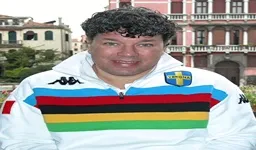 reemmo031-03-2025
reemmo031-03-2025 - Roger De Vlaeminck inspires me to create a new beer: "Bitter Old Twat Belgian".JackInhof31-03-2025
- Shoot, I'll ride it for 1/10 of what his pay for that day is😅Veganpotter30-03-2025
- What is this? The Lance Armstrong daily cheaters channel? I could care less about Johan and Lance the seven times cheater. Greg Lemond was right all along, Why don't you write about that instead of these two knuckleheads.velodrone28-03-2025
- Are we all doomed to hear from Lance Armstrong and Johan bruneel until the end of time? It's not enough the stain they left on cycling? Do we have to see that shadow forever?bigyakman26-03-2025
- I am not sure if it is the hardest to win. In Flanders and Roubaix well before the finish the Peleton will be decimated and the race will normally be won by the best rider of the day or maybe 2nd or 3rd in case of a mechanical or unlucky break especially in case of Roubaix. In San Remo just before the finish there will still be several riders in contention and they are hard to ditch. For the best riders it is a race hard to win since it is not so selective. But if you are not a top 5 rider but still a top 10 rider this race is your best change to win. You will see more Milan San remo Winners with only 1 monument win than any other monumentsJoostmehrtens19-03-2025
- "fap fap fap oh Lance oh oh OHHHHHHH" again. Does he pay you to dredge up people with nice things to say about him? He was an giant a$$hole to people. It is a fact. Whatever his contrition about the doping, he is unapologetic about being a giant a$$hole to people. (Why yes, I do only login to complain. *I* am however only a giant a$$hole to people who laud giant a$$holes.)ericjensenridesbikes25-02-2025
- Remco is still very young. And injuries can absolutely keep you from overdoing it and getting worse. The recent Remco accident didn't keep him from being able to ride a recumbent inside. Wout's knee is a different story thoughVeganpotter23-01-2025
- Van der Poel style is winning by a half a lap and leading the race from the end of the second lap.
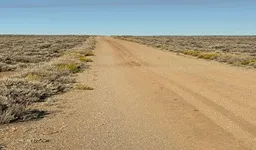 Barnes127420-01-2025
Barnes127420-01-2025